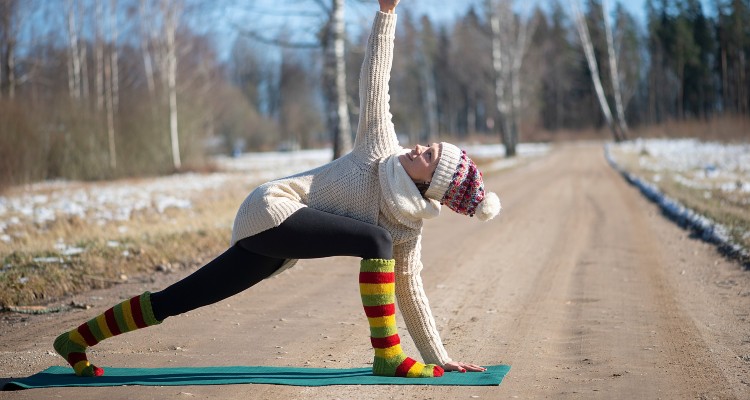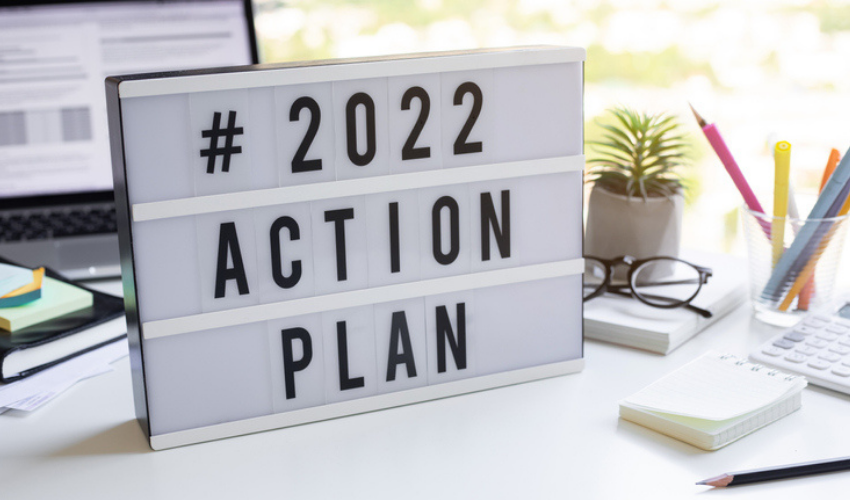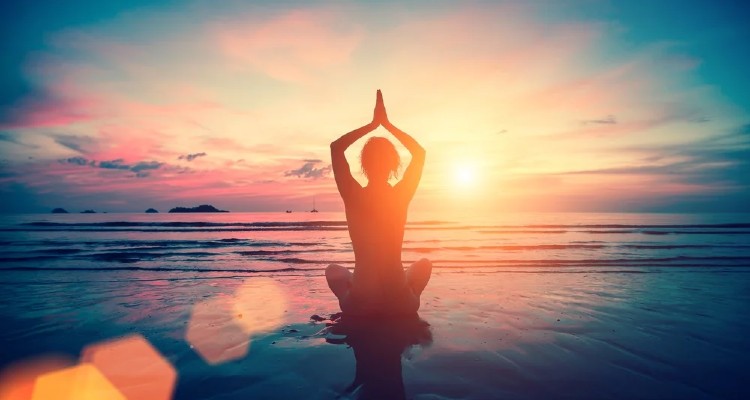
It goes without saying that 2020 has been a particularly intense year.
For some, the holidays felt isolating, as gatherings of family and friends weren’t able to bring the usual cheer. For others, the holiday season was a comforting respite after a challenging year. No matter what 2020 looked like for you, you might feel the need to reset your body in 2021.
Instead of dwelling on the challenges of last year, let’s use this desire for change as motivation to start fresh and reach new goals. This article provides actionable tips and strategies to do just that.
Be honest with yourself about your health goals from previous years—what has worked and what hasn’t? Use your own historical data for self-discovery and progression. Some people know they are able to completely overhaul their diet and stick to a new plan long-term, but for many others, this amount of sudden change won’t be sustainable or effective.
This article offers some strategies to make 2021 health goals more impactful—and less overwhelming—than previous years, hopefully setting you up for success.
Prep for Sustainable Habits to Help Reset Your Body
It’s tempting to set lofty New Year’s resolutions, but it’s essential to consider what it takes to form sustainable habits. For example, if you’d like to begin meditating, start with just five or ten minutes per day instead of shooting for an hour of daily meditation. This more achievable goal will set you up for long-term success.
Start the year with one or two realistic, measurable goals, and build a routine alongside someone who can help keep you accountable. This might be your integrative medical provider, a coworker, a friend, or a family member. For example, if you’d like to lose twenty pounds by July, break that down to a weekly and monthly weight loss goal, and plan the new habits you’ll need in order to get there. Check-in regularly with your accountability partner about how things are going, celebrate your successes and discuss any bumps in the road.
Be sure you have the resources to reach your goals. This includes time, affordability, support, accessibility, and enjoyment. If your goal isn’t realistic, think about how you can shift and shape it to fit your current lifestyle and circumstances.

Reset your Body by Detoxing the Correct Way
A New Year’s detox or cleanse may be tempting, but avoid crash diets or harsh cleanses that can negatively affect your metabolism. Committing to a period of clean eating and avoiding alcohol and other substances is never a bad idea, but most trendy detox diets are not beneficial or necessary.
Before considering any type of cleanse, it’s critical to first prime your body for proper elimination and detoxification. This means addressing gut health and ensuring you are having a bowel movement at least once per day, supporting your adrenals and HPA axis, and discussing an appropriate, safe, and effective detox method with your functional medicine provider once these building blocks are in place.*
It’s also important to omit toxins from your daily life, such as toxic household cleaning and hygiene products, makeup, processed and packaged foods, alcohol, cigarettes, and unfiltered drinking water.
You can also incorporate practices that encourage detoxification, like drinking plenty of water, practicing hot yoga, using infrared saunas, and taking certain nutritional supplements discussed with your provider, like milk thistle, curcumin, and B vitamins.
Reset Your Body with a New Diet Philosophy
The culture around diet mentality has done far more harm than good in helping people lose weight. The idea of “bad” and “good” foods, deprivation, white-knuckling hunger and cravings, feelings of shame for ditching restrictive eating plans, and yo-yo dieting has become par for the course—and none of these approaches lead to healthy relationships with food.*
Instead of starting yet another diet, think of 2021 as a chance to overhaul your diet philosophy—nourishing your body with foods that heal, support overall health and vitality, and building feasible habits that you can stick to in the long run.
Always start with small changes. Look at your current plate and consider how you can make it more balanced and nutritious. Begin with food journaling, using paper and pen or one of many free apps (like MyFitness Pal) as a short-term educational tool to observe what you eat. It’s common to miscalculate caloric intake, which is linked to insufficient knowledge of the macronutrient content in foods. Instead of removing or demonizing a macronutrient like carbohydrates, work on balancing your macros in accordance with your goals and your body’s needs.
Once you have a consistent balance in your diet, you can start with food replacements. For example, you can swap white potatoes for sweet potatoes or yams, white rice for cauliflower rice, pasta for zucchini noodles (zoodles), and bread for lettuce wraps. Perhaps you start with these alternatives for one meal per day, slowly but surely incorporating more changes as the year progresses.
Introduce or Switch-Up Movement and Exercise to Reset Your Health
If you’re currently sedentary, incorporating movement is key for physical, mental, and emotional health. If you’re already active, now’s the time to raise the bar.
Whatever your current fitness level, always choose activities that you enjoy. If you’re not a gym person, there are countless alternatives. Consider a new sport or hobby, work in the garden, find a home improvement project, join a walking or biking group, or simply take the stairs instead of the elevator.
It’s also helpful to think in terms of opportunistic exercise or extra activity that naturally works into the flow of your day. Do squats while you brush your teeth, lunges while talking on the phone, take a walk on your lunch break. The options are endless and only require a little creativity.
Introduce Mindfulness Meditation to Reset Your Mind and Body
Wellness is not just about weight management. Feeling your best means focusing on your mental, emotional, and spiritual health, as well. Mindfulness meditation is a practice that can support stress reduction, mood, sleep, energy, motivation, and overall happiness at home and in the workplace.
Nowadays, you can find excellent free apps that offer guided meditations based on your goals, from sleep to frustration, anxiety, and stress reduction. Meditation does not necessarily have to be seated—you can also explore walking meditation or movement-based meditations, like Qigong or Tai Chi. All of these practices allow the brain to disassociate from stressors, rest at the chemical level, regenerate, and rewire.*
While meditation’s benefits will not be experienced overnight, time, and practice can improve attention span, happiness, reactivity, irritability, concentration, relationships, and more.
Wrap-Up
This year, create actionable steps to reach realistic goals that you can stick to. Prepare with an accountability partner, set time-based, measurable and attainable goals that make sense for your current lifestyle and circumstances, and check in regularly to see how you’re progressing. To address the body on all levels, start with one or two goals that encompass a diet philosophy makeover, additional movement and exercise, and/or some sort of meditation practice that resonates with you.
Use the momentum from 2020 to build motivation for change, growth, health, and happiness in the coming year.
By Dr. Ramneek Bhogal



















